News
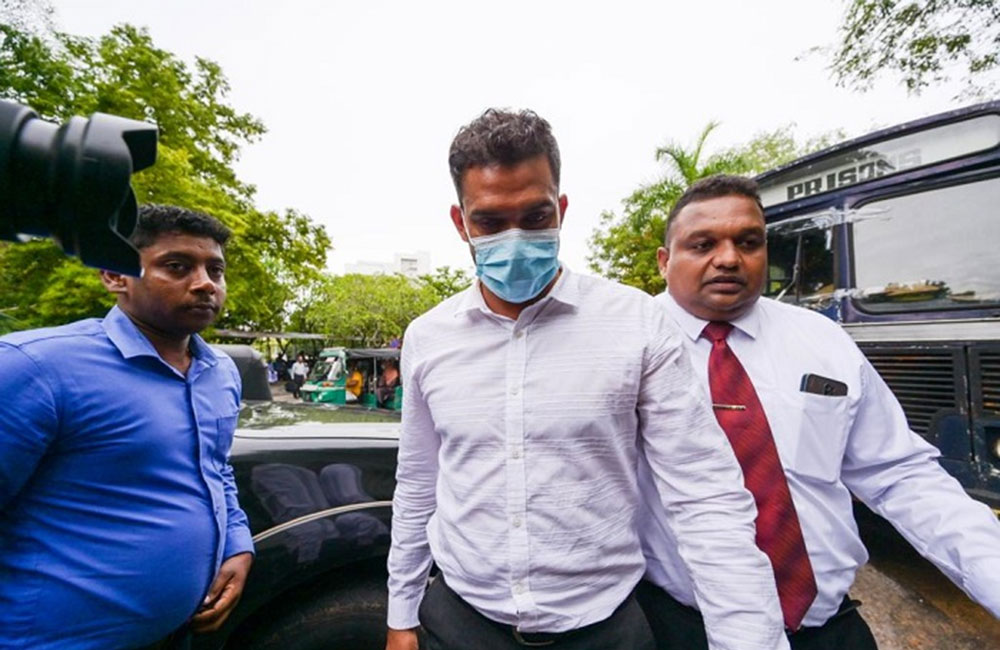
Former cricketer Sachithra Senanayake remanded
Former cricketer Sachithra Senanayake has been remanded on charges of match-fixing during the Lanka Premier League (LPL).
The Colombo Chief Magistrate remanded the former cricketer until September 15 after he was produced in court today.
Sachithra Senanayake was arrested earlier today after surrendering to the Special Investigation Unit of the Sports Ministry.
He is accused of trying to fix matches during the Lanka Premier League (LPL) in 2020.
It is alleged that Senanayake had approached two cricketers in the first edition of the Lanka Premier League (LPL) in 2020 via telephone from Dubai to fix matches.
In August 2023, the Colombo Chief Magistrate’s Court imposed a three-month travel ban on the former cricketer after a probe was launched into match-fixing allegations.
The former off-spinner has denied all the allegations, claiming them as baseless charges aimed at defaming him and his family.
Sachithra Senanayake (38) has played one Test, 49 ODIs and 24 T20 Internationals for Sri Lanka between 2012 and 2016.
newswire.lk
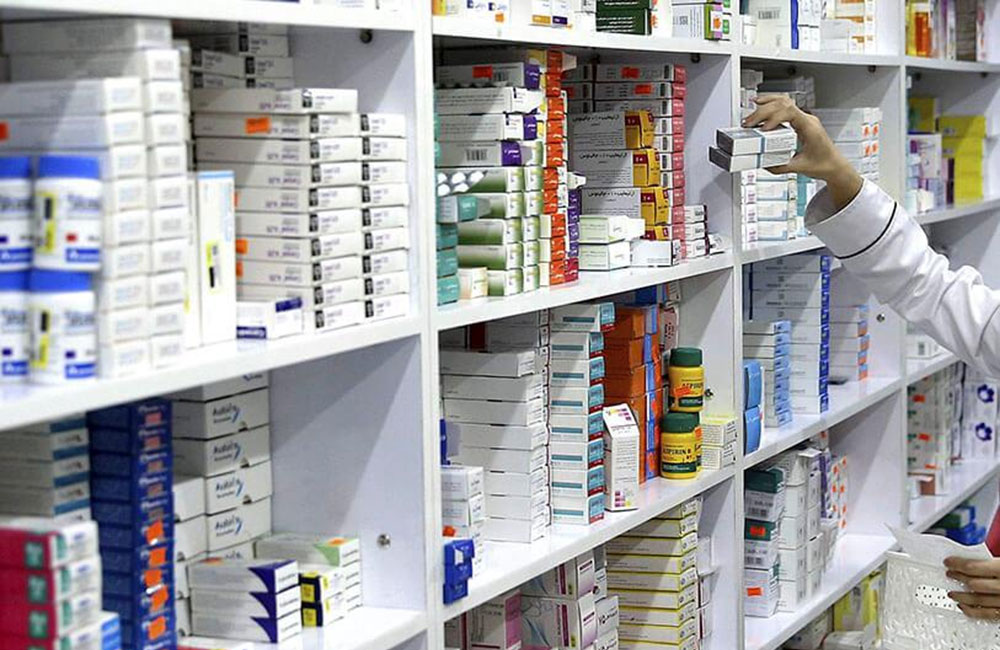
Another 400 types of medicines imported under emergency purchases
According to the Ministry of Health, 400 types of medicines have been bought under emergency purchases and distributed to hospitals.
Its Additional Secretary Dr. Saman Rathnayake stated that 378 types of medicines received under the Indian credit line have also been distributed to hospitals.
However, there is a shortage of 77 types of medicines in hospitals, he said.
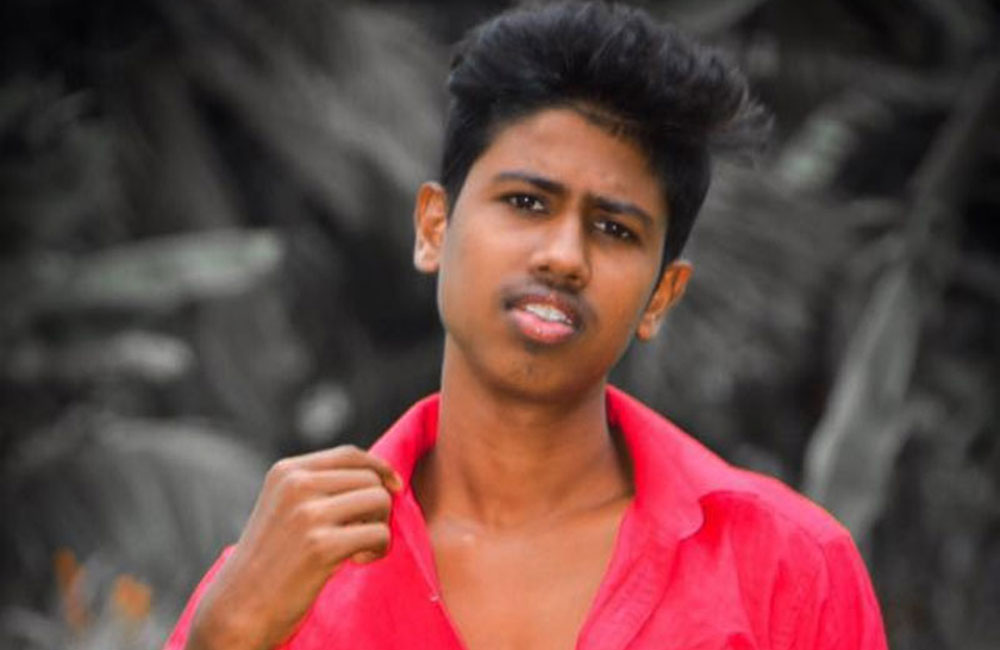
‘Choon Paan’ seller remanded for uploading threatening fb post on president
A 19-year-old 'Choon Paan' seller arrested for allegedly uploading and sharing a threatening Facebook post on president Ranil Wickremesinghe, was ordered to be remanded till September 8 after being produced before the Colombo Chief Magistrate's Court.
The suspect, a resident of Eppawala was arrested by the CID on suspicion ahead of the President's scheduled visit to the Thambuttegama and Eppawala areas on September 07.
The CID submitted to court that they were investigating to ascertain wheather there is any connection between this incident and an army soldier residing in Eppawala fleeing with a T-56 weapon from a the Kilinochchi Army Camp.
The suspect allegedly uploaded a Facebook post regarding the possibility of finding a sniper ahead of the President's scheduled visit to Eppawala area on September 7.
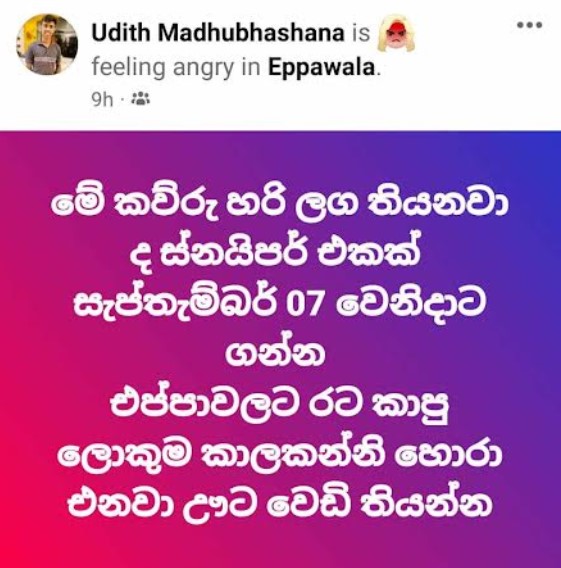
(dailymirror.lk)
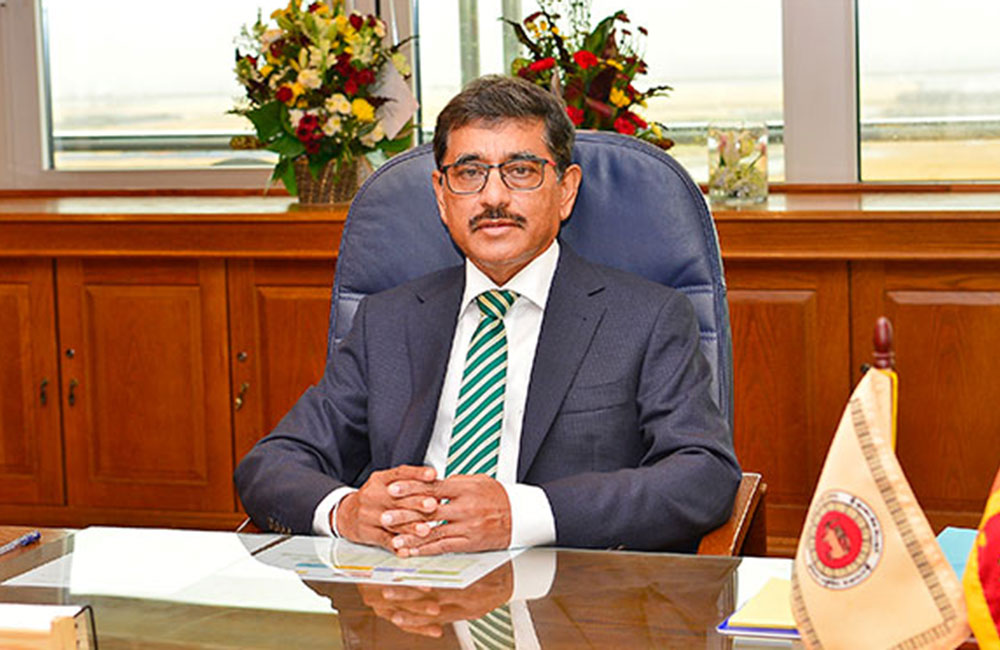
Dr. Nandalal Weerasinghe makes the list of the world's 21 top "A" Grade Central Bank Governors
Sri Lanka's Dr. Nandalal Weerasinghe has made the list of the world's 21 top "A" Grade Central Bank Governors of the Global Finance Magazine.
The Central Banker Report Cards, published annually by Global Finance since 1994, grade the central bank governors of 101 key countries and territories including the European Union, the Eastern Caribbean Central Bank, the Bank of Central African States, and the Central Bank of West African States.
Grades are based on an “A” to “F” scale for success in areas such as inflation control, economic growth goals, currency stability, and interest rate management.
“A” represents an excellent performance down through “F” for outright failure.
Meanwhile, governors who earned an “A-” grade included, Colombia’s Leonardo Villar, Dominican Republic’s Hector Valdez Albizu, Asgeir Jonsson of Iceland, Indonesia’s Perry Warjiyo, Mexico’s Victoria Rodriguez Ceja, Morocco’s Abdellatif Jouahri, Norway’s Ida Wolden Bache, Lesetja Kganyago of South Africa and Rhee Changyong of South Korea.
Shaktikanta Das has been placed at the top of the list of three central bank governors, by US-based Global Finance magazine.
He is followed by Switzerland’s Thomas J Jordan and Vietnam’s Nguyen Thi Hong.
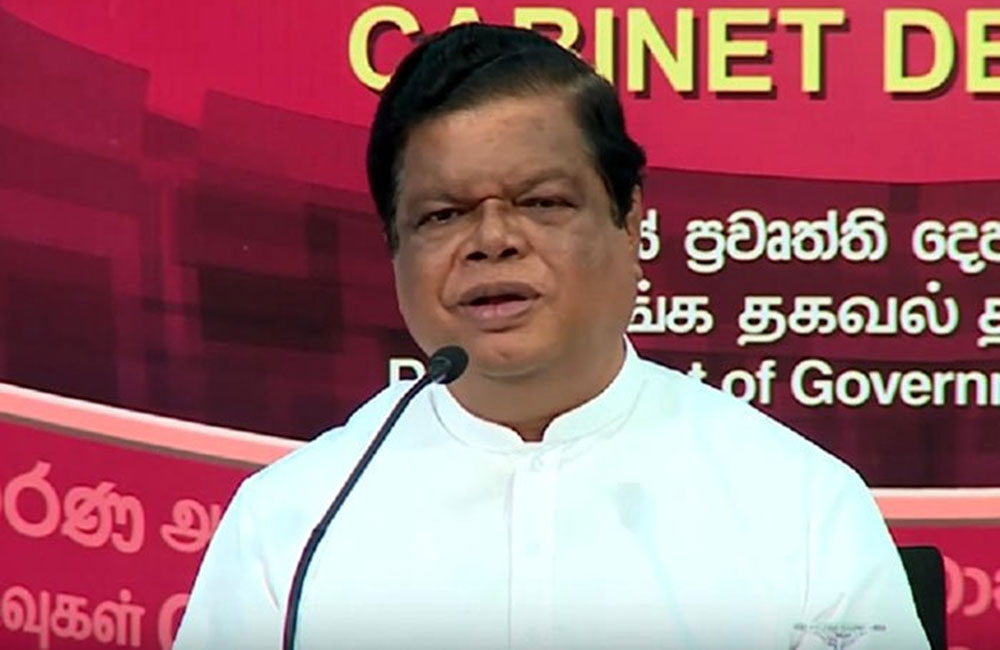
Investors called to purchase electric buses for Western Province – Minister
Investors have been allowed to purchase 200 electric buses for operation in the Western Province, Minister of Transport, Highways and Mass Media Dr. Bandula Gunawardena said.
Speaking at a press conference held at the Presidential Media Centre (PMC) on Monday (04 Sep.), the Minister highlighted that this program will be implemented in accordance with the world agreement where all public transportation worldwide will be free from fossil fuels by 2030.
Accordingly, he stated that an Expression of Interest (EOI) has been called for the project, allowing investors to import 200 electric buses for the Western Province, while also enabling them to establish charging points.
Below is the full speech delivered by Dr. Bandula Gunawardena; “Investors have been allowed to import 200 electric buses for the Western Province. For this project, Expression of Interest has been called.
It will be implemented as a domestic and foreign joint venture. Also, the investors have been allowed to establish charging points.
The investor would be allowed to operate the project to recover the invested capital. Thereafter, within a certain period, the ownership of the buses will be acquired by the government. Any country in the world including China and Korea could apply for this project. This is an investment opportunity.
There is a global consensus that all public transport in the world should reach zero emission by 2030. Those involved in carbon trading are investing in this to protect the ecosystem. Electric buses bring great value to the environment. Various organizations in the world are paying a high price to protect this value.
Also, all government institutions should be digitized to prevent decrease in income. A cabinet paper has been presented to replace issuance of tickets with electronic cards. When you transact using advanced technology such as card or QR system instead of cash, you could increase the income of each of these institutions by at least 50%.
Institutions such as the Inland Revenue Department, Customs, Excise Department, Railways, Sri Lanka Transport Board, etc. can be rebuilt through modern technology. Without it, the government cannot bear the burden. Many changes have been made to the railway system.
A shipment of rail tracks has been brought to the port after 4 years under the loan assistance of the Asian Development Bank. The railway line from Colombo to Panadura is in a state of dilapidation. Coastal railway tracks need to be replaced at least every 5 years. As a result of the dilapidated railway lines, the trains have to run at a reduced speed, causing delays for commuters who have to report for duty on time.
Therefore, the restoration work of the railway track from Colombo to Panadura will commence within the next few days. The northern railway line was temporarily closed since January to upgrade the tracks from Anuradhapura to Kankasanthurai.
Further upgrades are scheduled on this northern track from Mahawa to Anuradhapura in January 2024. Once these upgrades are completed, trains on the northern track would be able to operate at a speed of 100km per hour from Colombo to Kankasanthurai.
A loan agreement is to be signed under Indian loan assistance for the modernization of the signalling system. A renovation process to increase the speed by removing the speed limits of the Kelanivalley railway line will commence from the first week of this month.
If a train carriage is imported from abroad, it costs Rs. 200 million. A Sri Lankan entrepreneur refurbishes a train carriage for Rs. 25 million. Accordingly, it is hoped that the existing railway carriages will be renovated through the upcoming budget.
Employees are impressed with our program. The trade unions are now supporting us. We also get their support in dealing with polluters. I appeal to the trade unions not to inconvenience passengers in order to achieve their demands. In the event there are issues that affect them, it could be discussed with the relevant officials where a solution could be found.
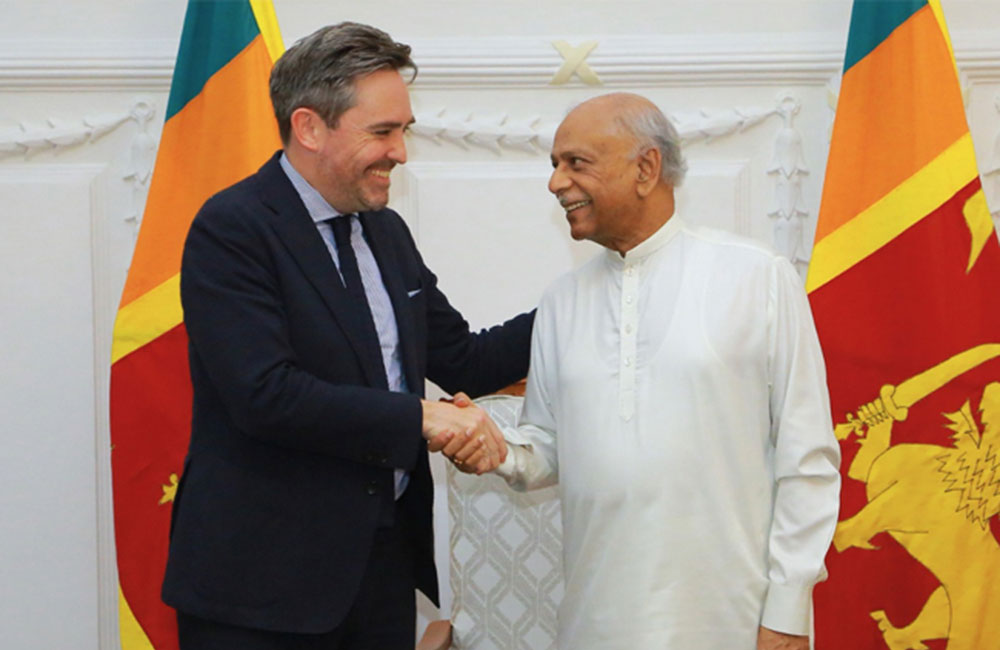
UN envoy commends Sri Lanka’s economic recovery, assures fullest cooperation
Marc-Andre Franche the newly appointed United Nations Resident Envoy during a meeting with Prime Minister Dinesh Gunawardena at Temple Trees yesterday (01) commended Sri Lanka’s economic recovery from an unprecedented crisis and assured continuous support for the development process.
Franche pointed out that Sri Lanka is heading back in the right direction, but the next couple of years may be very difficult for not only the island nation, but also most of the countries due to the global economic downturn.
Prime Minister Dinesh Gunawardena in response noted that the government of Sri Lanka has taken a number of initiatives to boost food production in the island nation and guarantee food security. Along the way, Sri Lanka expects not only being self sufficient in food, but also growth in foreign exchange through exports, he emphasised.
He added that measures undertaken to address the issues of individuals affected by thirty years of war are already in motion, adding that there is a significant progress, such as the return of over 95 per cent of land in the North and East parts of the country that was confiscated during the conflict.
Further, land mines have been removed from the so that farming will no longer become a problem, and LTTE detainees have been released, whilst the fisheries sector has regained normalcy, Gunawardena told Franche.
Meanwhile, the two parties also discussed Sri Lanka’s development initiatives related to Sustainable Development Goals (SDGs), green economy, social cohesion and social protection.
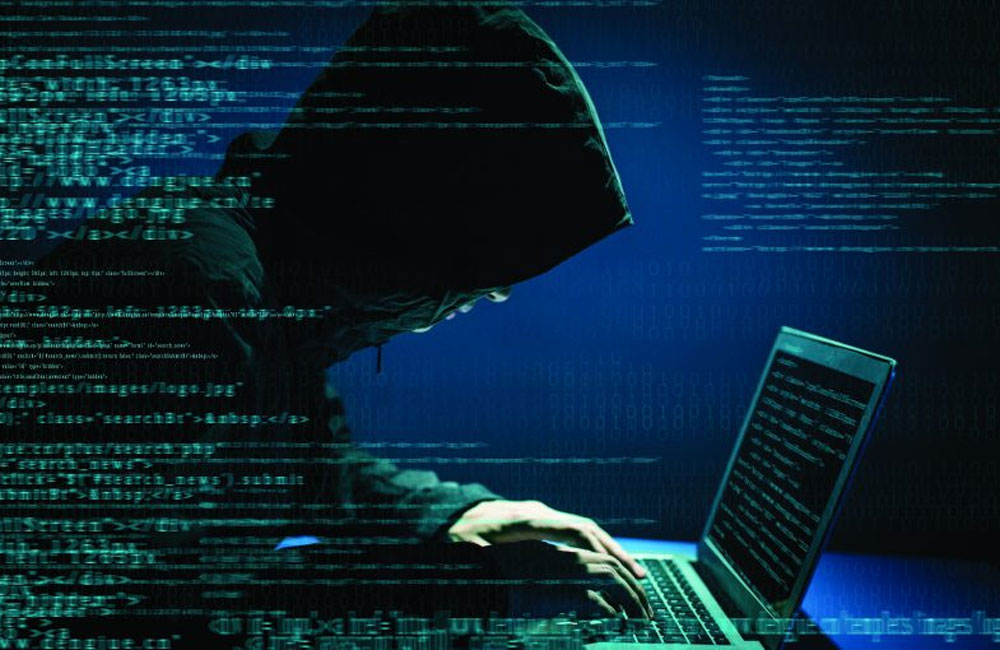
Cyber Security Bill receives AG’s clearance
The Bill on Cyber Security, as prepared by the legal draftsman, has received due clearance from the Attorney General.
The relevant Bill was introduced in a bid to shield society from the spread of false information and other malicious manipulations they may be exposed to on the internet.
Accordingly, the proposal tabled by Minister of Public Security Tiran Alles to publish the Bill via a gazette notification and subsequently present it for parliamentary approval, was approved by the Cabinet of Ministers at a meeting held on Monday (04 Sep.).
As per the approved Bill, statements spreading false information about incidents that have taken place in the country, defamatory statements, statements causing religious disharmony, or those pertaining to child abuse and other forms of harassment, amongst others, have been interpreted as offenses under the provisions of Part III of the said Bill.
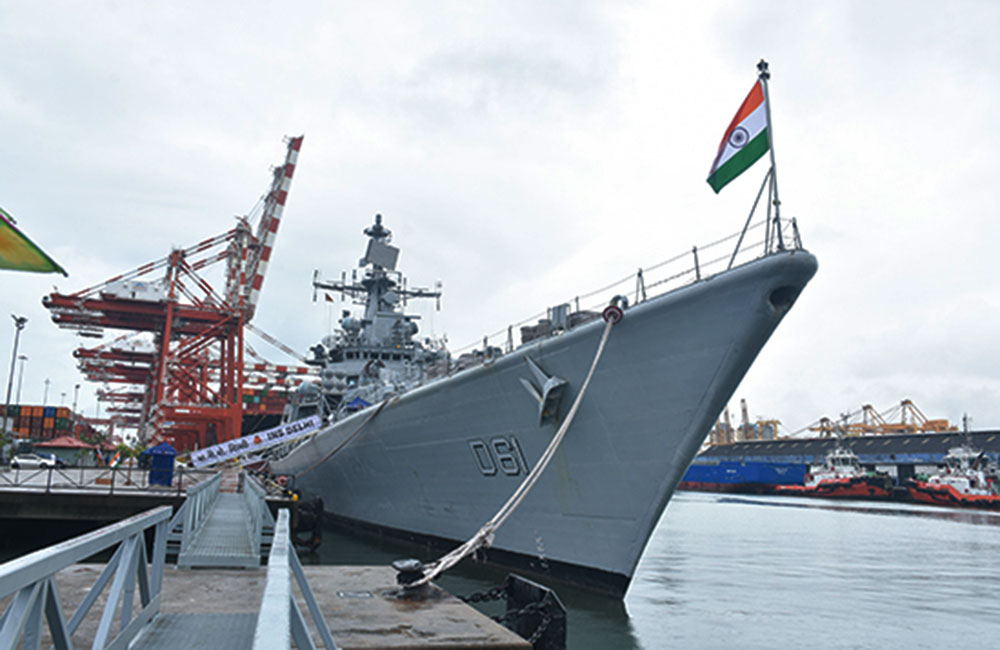
Indian warship in Colombo ahead of Defence Minister visit to Sri Lanka on Saturday (2)
The Indian Naval Ship (INS) ‘Delhi’ arrived at the port of Colombo on a formal visit this morning (01st September 2023). The visiting ship was welcomed by the Sri Lanka Navy in compliance with naval tradition.
INS ‘Delhi’ is a 163.2m long Destroyer manned by a crew of 450 and the ship is commanded by Captain Abhishek Kumar.
The Commanding Officer of the ship called on Commander Western Naval Area, Rear Admiral Suresh De Silva at the Western Naval Command Headquarters this morning.
During the ship’s stay, the crew will take part in several programmes organized by the Sri Lanka Navy, with a view to promoting cooperation and goodwill between two navies. They are also expected to visit some of the tourist attractions in the country.
In addition, INS ‘Delhi’ has made arrangements to open the ship for the visit of school children. Further, training exchanges are scheduled to be held aboard, involving naval personnel from both navies.
The ship is expected to depart the island on 03rd September and she will conduct a Passage Exercise (PASSEX) with a ship of Sri Lanka Navy, off Colombo.
At the same time, the Defence Minister of India, Shri Rajnath Singh is scheduled to visit Sri Lanka on 02-03 September 2023 to review bilateral defence ties.
During the visit, Shri Rajnath Singh will hold talks with President and Defence Minister of Sri Lanka Ranil Wickremesinghe and Prime Minister Dinesh Gunawardena.
The entire gamut of India’s defence ties with Sri Lanka will be reviewed during these meetings. The Defence Minister will also visit Nuwara Eliya and Trincomalee.
This visit of Shri Rajnath Singh reiterates India's continued commitment in furthering the existing warm and friendly relations with Sri Lanka. The visit is an important landmark in deepening the enduring bonds of friendship between the two countries in the defence sphere.
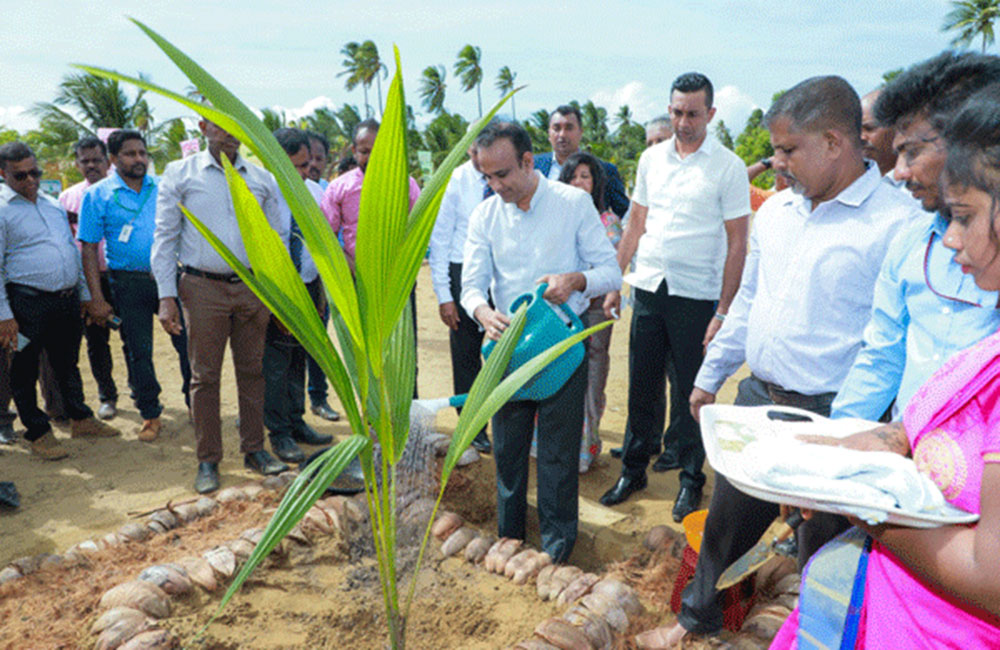
Sri Lanka’s Second Coconut Triangle : Three districts revealed
Sri Lanka’s Second Coconut Triangle : Three districts revealed September 3, 2023 at 1:51 PM
In a strategic move aimed at bolstering export revenue, Sri Lanka has inaugurated its second coconut triangle in the Northern Province. This new triangle encompasses the regions of Jaffna, Mannar, and Mullaitivu Districts.
Plantation Minister Dr. Ramesh Pathirana emphasized the remarkable growth in coconut export revenue in recent years, attributing it to the diverse range of coconut-derived products that have garnered increased global demand. Projections indicate that this year’s exports related to coconuts are expected to bring in USD 700 million. Over the next decade, it is anticipated that coconut-based exports will contribute a substantial USD 2 billion to the nation’s revenue.
Sri Lanka traditionally allocated two-thirds of its coconut production for domestic consumption, with the remaining one-third designated for export. To further enhance export potential, Minister Pathirana highlighted the need to rebalance this ratio. This ambitious initiative aims to solidify Sri Lanka’s status as a prominent player in the global coconut market and foster economic growth in the Northern Province through increased coconut cultivation and processing.
The launch of the second coconut triangle represents a significant stride toward achieving these objectives and highlights Sri Lanka’s commitment to harnessing the full potential of its coconut industry.
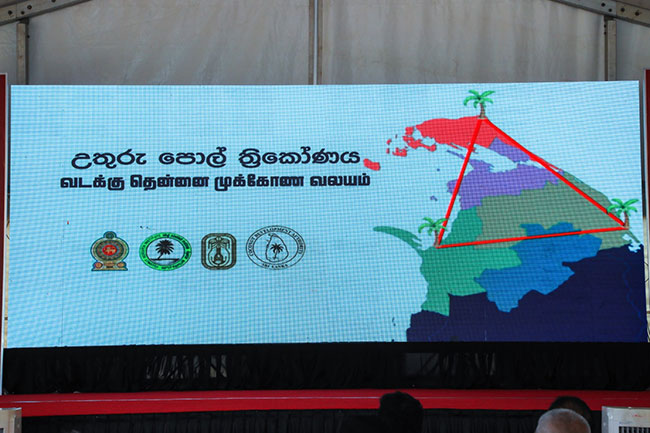
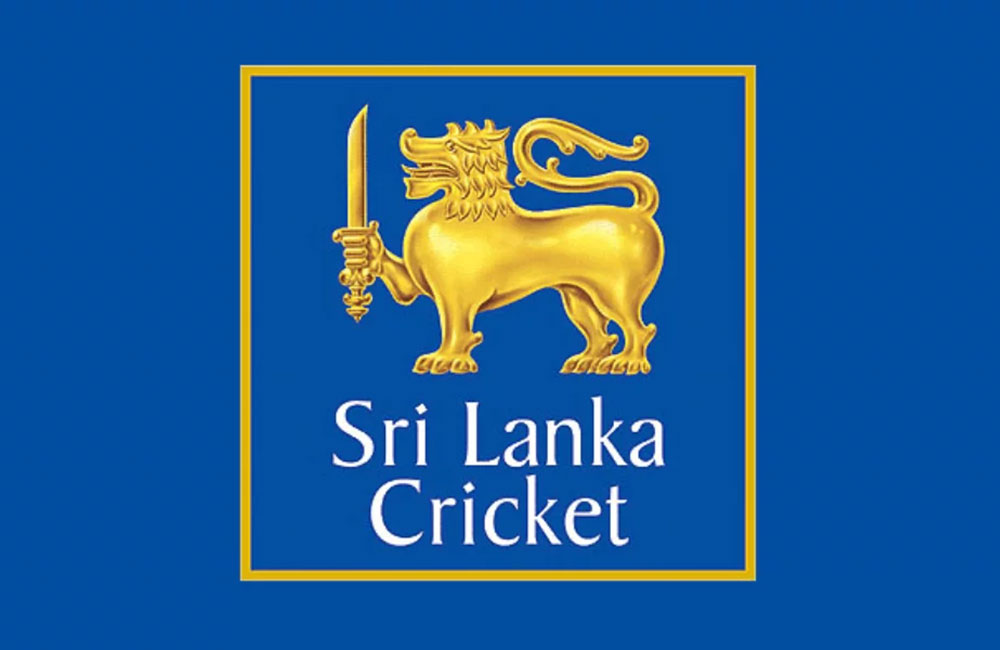
SLC suspends all domestic tournaments over issue with Sports Ministry
Sri Lanka Cricket has decided to immediately halt all board-conducted domestic tournaments.
This includes the ongoing Major Club 3-Day Tournament and also the Invitational Club Tier ‘B’ 3-Day Tournament.
The decision follows the ratification of an appeal advisory committee decision by the Minister of Sport and Youth Affairs.
The Director General of Sports has issued a written instruction dated August 25, 2023, on Sri Lanka Cricket pursuant to this.
Accordingly, Sri Lanka Cricket is compelled to suspend all SLC-organized domestic cricket tournaments until clarification is obtained on the same.
(Sri Lanka Cricket)
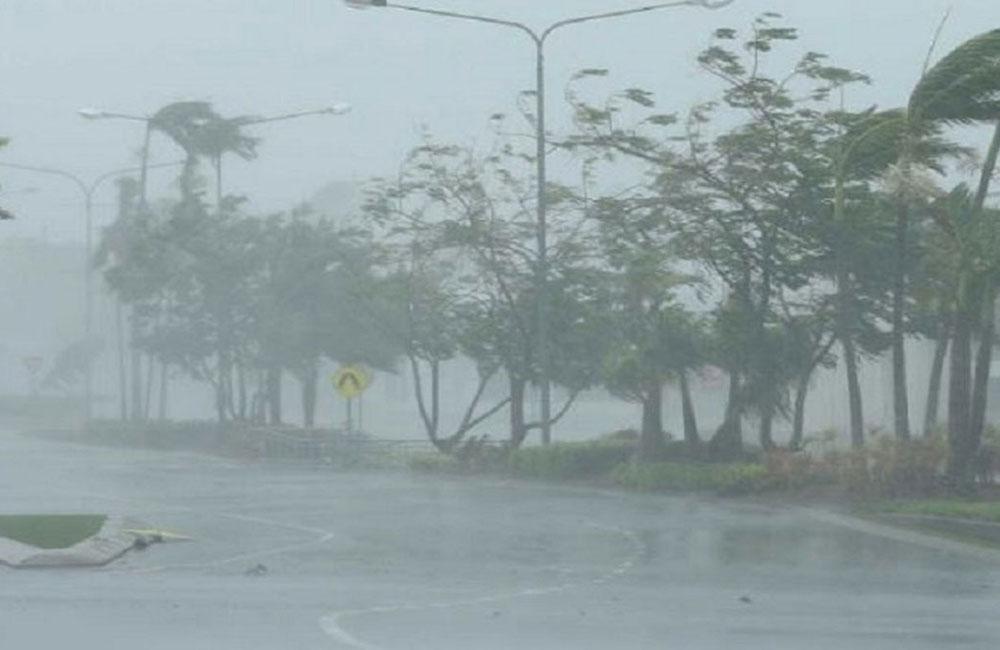
Advisory for heavy showers in the Western, Sabaragamuwa and Southern provinces
Showers or thundershowers will occur at times in the Western, Sabaragamuwa, Southern, Central, and North-Western provinces, The Met Department predicts.
Heavy showers of about 100mm are likely at some places in the Western, Sabaragamuwa, and Southern provinces.
The landslide warning notice issued to four districts in view of the prevailing showers rains will remain in effect until 12 noon today, The National Building Research Organization said.
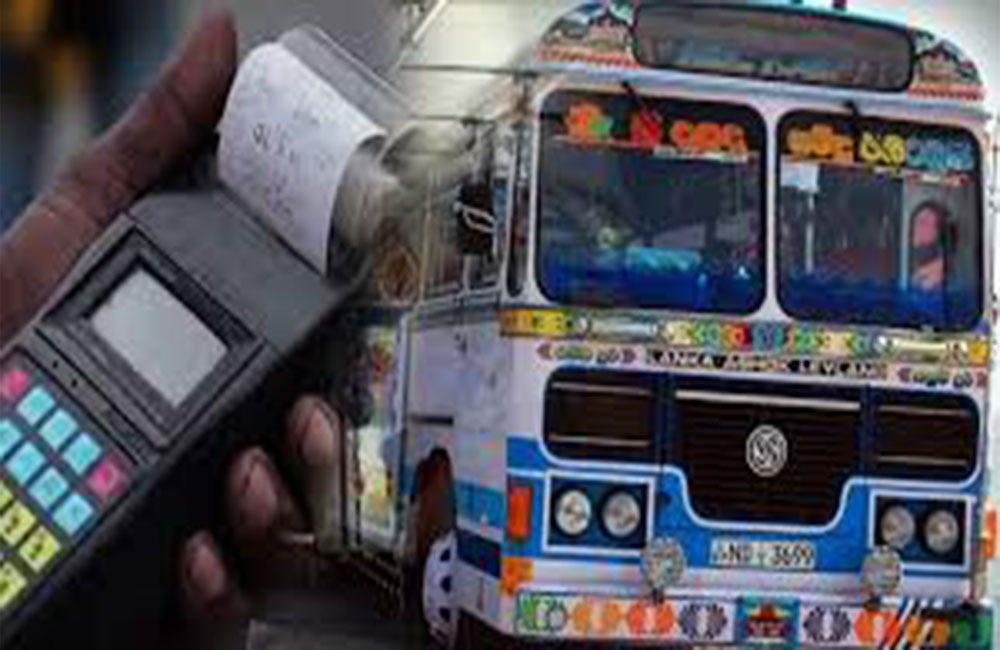
New increased bus fares announced
The fares of several transportation services in Sri Lanka have been increased following the recent fuel price revision.
The Association of Container Transporters has announced that container haulage charges will be increased by 5%.
The Association further said that the price hike will come into effect from midnight today (Sep 01).
Meanwhile, the National Transport Commission (NTC) announced that bus fares will be increased by 4.01% from midnight tomorrow (Sep 02).
The NTC further stated that, however, the minimum fare will remain unchanged.


Page 251 of 681